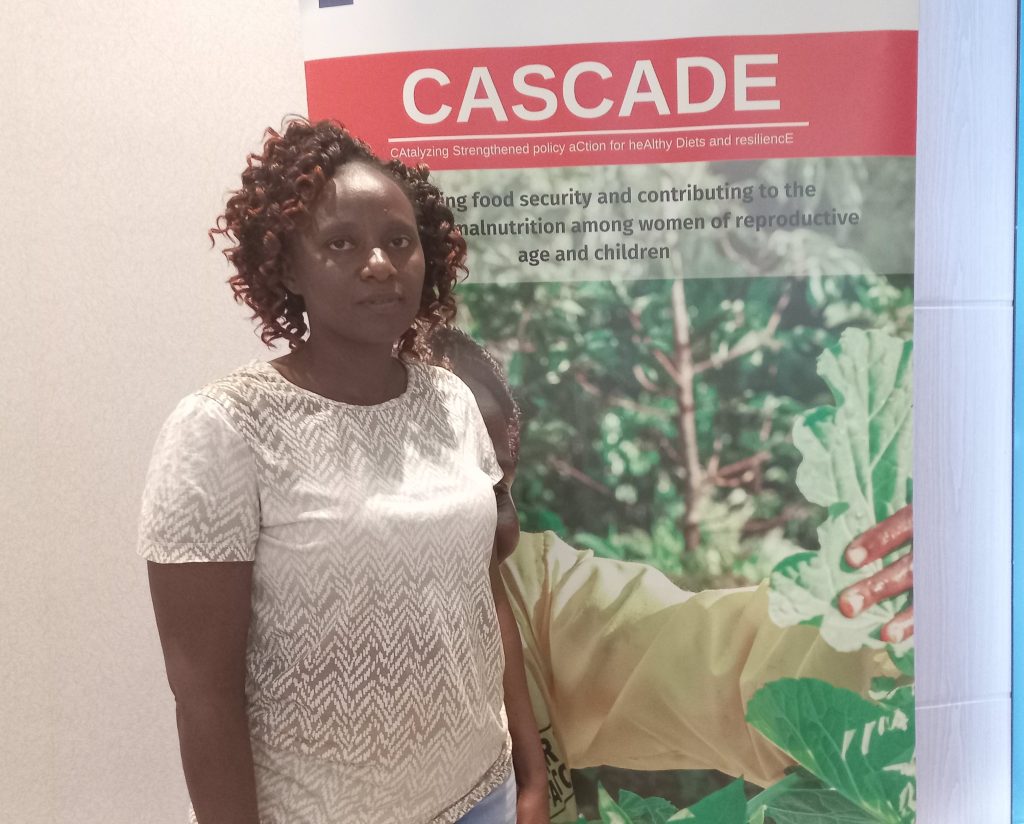Food insecurity has remained a perennial problem and worsened by a non-function food system , climate change and increasing population growth.
Despite actions being taken, there is persistent malnutrition driven by changing dietary habits and experts are warning that Nutrition outcomes in the country can only be realized by improving health diets and access to more nutritious food,
Different stakeholders in the nutrition space and also policy makers have been called to translate the existing nutrition policies into tangible outcomes.
Speaking after a one day media engagement organized by the Global Alliance for Improved Nutrition (GAIN) and who are implementing a project dubbed “CAtalyzing Strengthened poliCy Action for healthy Diets and resiliencE (CASCADE) ‘,Charles Opiyo, Head of policy and Advocacy said there is so much that needs to be done in the implementation of the policies.
He gave an example of food fortification strategy that the country has really worked hard on as a requirement in terms of micronutrient though , he adds there is still much more to be done
“The programme has been implemented at national levels with the Counties being involved, but we need to be deliberate by asking counties now to have their own domesticated nutrition strategies cascading some of the frameworks”, Opiyo said
He noted that only four counties, for instance, namely Kiambu, Nairobi, Mombasa and Nakuru have developed draft policies on not just food fortification but also linking it up with the food systems issues.
GAIN through the CASCADE project , Opiyo said is now advocating for the improved implementation of nutrition-related policies and strengthening the capacities of nutrition-related policy makers and delivery systems to improve access to healthier diets for improved nutrition”, he added,
“The first generation fortification strategy just came to an end last year, 2022 and now we have started putting together the second generation. We have had a number of stakeholder meetings to just review and reflect on the journey in terms of how much effort Kenya has been able to put in place to achieve the mandatory food fortification requirement”, he noted.
He named three critical forms of malnutrition that should be tackled and the country is still grappling with as undernutrition, rising cases of non-communicable diseases and micronutrient.
“Nutrition because Many communities are not eating enough food and this means stunting levels are not good wasting is also very high., NDC because of dietary practices where we are hitting a lot of more highly sugary foods, sweetened, salty and food with high fat levels which has implication in term of our health and micronutrient which is highly recommended and we really must be able to enrich our staples with vitamins and minerals”, he emphasized.
It is time, Opiyo said that all industry players including County and National governments involved in the food nutrition space to work together through the national food fortification alliance or even the County alliances ,look at the progress made in terms of surveillance and basically looking at compliance levels in the country and in which direction we are moving.
“ We are calling for everyone , all the way from non-stakeholders to governments to everybody else, including the consumers who must be empowered to be able to ask and demand that they are able to access fortified foods so that at least we can also see improvement in our health outcomes”, Opiyo said .

On matters Food system transformation in the country, Opiyo said that Kenya made very bold commitments to transform the food systems by 2030 and it has actually been synthesized in five key areas.
He specifically named digitalization of food systems saying the government is doing so much to now digitalize a lot of services including enlisting farmers on systems so that they can access subsidies.
Opiyo however noted on the need to move further by developing dashboards, involving other partners in nutrition as well as look at the climate action considering the country has suffered repeated cycles of failed rains and this calls for harmonization of climate initiatives within the food systems .
Diana Mureithi, a nutritionist working in Kasarani sub-County said malnutrition has been increasing with a lot of children having micronutrient deficiencies.
She noted that in order to address this, Nairobi County has introduced Micronutrients Nutrition Powders (MNP) Sachets that have multiple nutrients, minerals and vitamins to be given to the children who are below five years.
“The first six months we do the exclusive breastfeeding, after six months now we do the complementary feeding, and at this particular point in time, we are able to enrich the child’s food with the sachet micronutrient powders by giving a share per day per child in a small amount of food”, she said
`The Micronutrient powder sachets, Mureithi said can be accessed at any chemist at Ksh 10 and it is recommended that one sachet per child per day will assist in addressing malnutrition.
Kenya is experiencing the “triple burden” of malnutrition: under nutrition, micronutrient deficiencies, overweight and obesity. 18 percent of children under 5 are stunted, 10 percent are underweight, 3 percent are overweight and 42 percent of women experience iron deficiency anaemia during pregnancy.

CAtalyzing Strengthened poliCy Action for healthy Diets and resiliencE (CASCADE) is a project by CARE and GAIN implemented in 5 African countries namely Kenya Benin, Nigeria, Uganda, Ethiopia and Mozambique.
In Kenya the programme is being implemented in three counties of Nairobi, Nakuru and Nyandarua to improve food security and contribute to the reduction of malnutrition of at least five (5) million women of reproductive age and children under 5 years.
By Wangari Ndirangu




